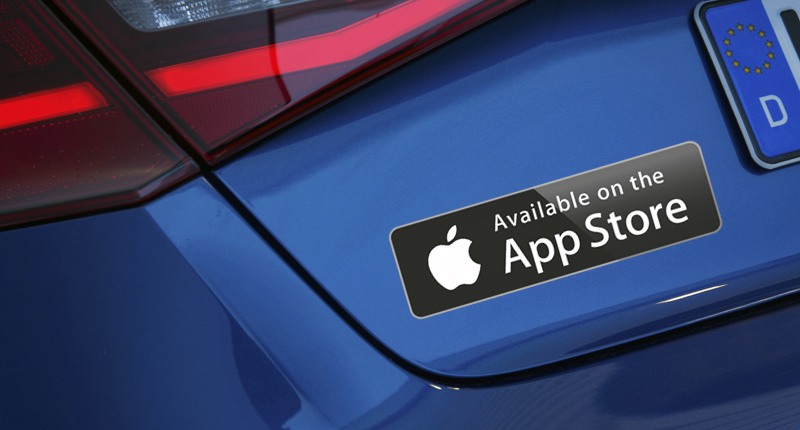Cars are no longer just cars. No, the humble automobile has essentially evolved into an oversized personal device.
Indeed, at the Mobile World Congress last year, Ford bigwig Steven Odell uttered the following words: “Cars are the smartphones of the futureâ€.
No ad to show here.
Itâ€
However, Google – that other massive American multinational – has been anything but secretive about its Self-Driving Car Project, and is soon set to unleash a fleet of pod-like prototypes on public roads. This after spending a few years developing autonomous systems on existing vehicles.
So, even if Apple is indeed working on the equivalent of an automotive iPhone, will it ever actually build one? And, despite Googleâ€
Well, there are a number of reasons it could happen. Both of these tech titans – each boasting huge dollops of brand equity – have more than enough capital to simply waltz into almost any industry they choose. Why would they pick this one? Well, the self-driving car will undoubtedly be the next big thing in Silicon Valley, and each firm certainly already has a beady eye on a generous slice of that geeky pie.
One only has to look at the massive automotive presence at the 2015 Consumer Electronics Show to understand just how intertwined the tech and auto worlds have become. Everything from autonomous driving and vehicle communication tech to in-car gesture control and collision avoidance was on show at the event, with a record 10 automotive manufacturers exhibiting their next-generation wares.
Furthermore, Tesla — despite the fact that CEO Elon Musk admits the company may only see an annual profit in 2020 — has shown that there is indeed space for tech-centric corporations in the automotive industry. In fact, the electric car specialist has arguably already shed its “disruptor†status, with a number of far larger automakers apparently working on products to rival Teslaâ€
Then thereâ€
Of course, building cars is an entirely different proposition to manufacturing phones or creating software. For one, the average upgrade cycle of an automobile is a relative age when compared to that of a smartphone or an operating system. And profit margins in a heavy manufacturing industry such as the auto segment are miniscule when viewed alongside Appleâ€
In fact, Apple, Google or any other industry newcomer would have to sell millions of cars almost immediately — competing against a number of established brands in the process — to make the project viable in the short-term. Either that, or opt to instead introduce a handset-like leasing (rather than outright buying) scheme. Even that, however, would be a stretch.
Furthermore, if Apple or Google started to build their own cars, the rest of the worldâ€
So, why then has Google (and perhaps Apple) already built “mock-up†vehicles? Well, it makes perfect sense to create prototypes — without actually ever taking them into full production — for the sake of the valuable insights they could potentially provide for software integration. Ultimately, itâ€
Understanding the car of the future – rather than actually building it — is more plausibly the reason behind Appleâ€
And Google? Well, Chris Urmson, the director of the companyâ€
Cars may be the smartphones of the future, but that doesnâ€
